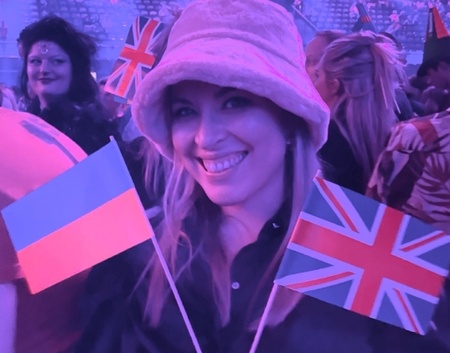A University of Aberdeen academic will use the Eurovision Song Contest as a platform to investigate popular culture and national identities.
Dr Barbara Barreiro Leon, a Lecturer in the School of Language, Literature, Music and Visual Culture, has been commissioned to produce a monograph exploring how identities are represented through film, music and other contemporary arts.
Her book will include a chapter dedicated to Eurovision and she will be backstage in Liverpool for both the semi-finals and final of the competition, which the UK is holding of behalf of last year’s winners Ukraine.
Dr Barreiro Leon, an art historian who specialises in visual culture, is one of a select group with access to the performers and the backstage of the contest and will use this to gather interviews and thoughts from those taking part.
She said: “This is a unique opportunity to explore an event which while seen in many countries as low brow or kitsch, is still the biggest musical event in the world.
“Eurovision was founded in 1956 to bring Europe back together following the Second World War and has since built up an enormous fan base which crosses a huge number of national borders.
“From that perspective it is the ideal vehicle to look at more than 70 years of change in our societies and culture.”
Dr Barreiro Leon will focus on the visual aspects of the event and says there are few more spectacular sights of colour, costume and flags.
“I want to explore how the performers songs and staging embody the identities of each of the places they are representing,” she added.
“I think I’ll be the only person among the press pack looking at this from an academic perspective and while it may appear on first glance not to be the sort of event which is usually the subject of rigorous study, there is an incredible amount we can learn from it.
“The popular culture of today – the things we use as entertainment, fashion or art – may be seen as fads or trends that will fade with time but these things teach us so much about the communication and culture of different generations.
“Eurovision is a place where we can see this across many different years and many different nationalities. In the way that we might visit a museum to look at an 18th century painting and try to understand the meaning behind it, we can look at the visual identities on display and consider what they say to us about social movements and trends and how these are revealed through the visual expressions of that time.”
Dr Barreiro Leon’s monograph Representing Identities in Media and Popular Culture will be published by Vernon Press and will also include the study of films and music videos.


